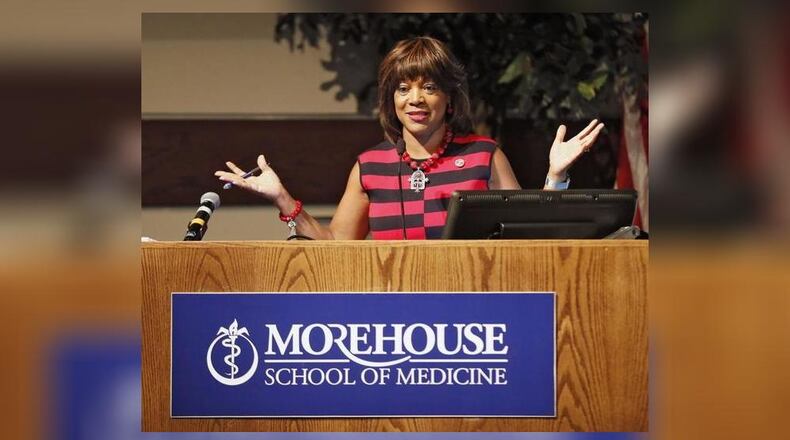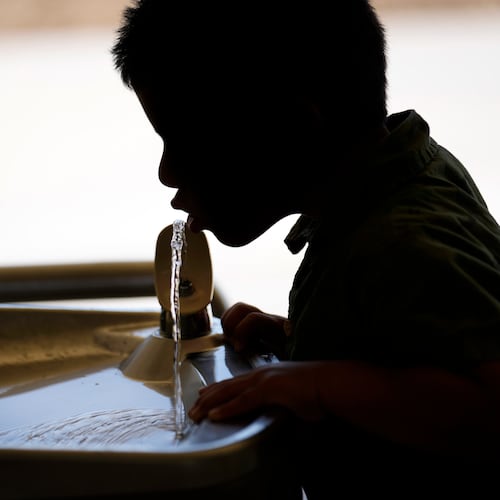The U.S. Department of Health and Human Services announced Tuesday it is providing a $40 million grant to Atlanta’s Morehouse School of Medicine to fight COVID-19 in racially-diverse, rural and socially vulnerable communities.
The medical school will work with the HHS Office of Minority Health on a three-year project with community-based organizations across the nation to deliver education and information on resources to help fight the pandemic, such as testing and vaccinations once one is developed and federally-approved.
The partnership starts next month.
The grant is the second partnership in a week between the school and an organization with ties to the federal government. The CDC Foundation, an independent nonprofit created by Congress to mobilize philanthropic and private-sector support for federal health protection work, last week announced a joint effort with the medical school to provide real time data that addresses the health equity implications of the pandemic.
The HHS grant is believed to be the largest, single federal contribution to the medical school, founded in 1975, in its history.
Widespread research has shown Black and Latinos have disproportionately contracted and died from the disease. About 60% of confirmed COVID-19 cases in Georgia were people who are Black or Latino, state data shows. Blacks and Latinos make up about 42% of Georgia’s population, U.S. Census Bureau data shows.
“This work will create the opportunity to measure the effectiveness of interventions being deployed to mitigate the impact of COVID-19. The results of which should lead to a new found knowledge base to better prepare for and respond to future pandemics, especially in vulnerable communities,” MSM President and Dean Dr. Valerie Montgomery Rice said in a statement.
MSM is already conducting research on COVID-19 and its impact on Black and socially vulnerable communities. It released a study last month that found coronavirus cases are higher in Georgia counties where more Blacks live, even after removing factors such as poverty, health insurance and population density.
COVID-19 is increasingly impacting Georgia's rural and exurban communities as well, data shows. A team of Georgia Southern University graduate students reported this month that rural counties in South Georgia such as Early, Hancock and Terrell have some of the highest COVID-19 mortality rates in the nation. The Atlanta Journal-Constitution explored the rising cases in rural Georgia earlier this week.
Federal officials hope the partnership will determine whether there are factors that are leading to some of the reported cases.
“We know the power of partnerships to help us solve our most pressing public health challenges,” U.S. Surgeon General Jerome M. Adams said in a statement. “This initiative has at its core the community-based organizations who know their people best and who are committed to working collaboratively to reduce health-inequities and make them healthy and safe.”
Dr. Dominic Mack, director of the National Center for Primary Care and professor of Family Medicine at MSM, and Daniel E. Dawes, director of the Satcher Health Leadership Institute will co-lead the effort.
“By working collaboratively at the community level to advance health equity, we can make a meaningful difference in health outcomes,” Mack said.
About the Author
Keep Reading
The Latest
Featured


